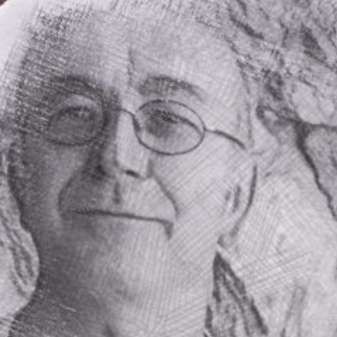In the clear, warm acoustic of the oval St. Cecilia's Hall, the imaginatively named, local Baroque ensemble, Lord Rochester's Monkey, delighted an afternoon audience with a programme entitled Le Caffé - also the title of the central cantata by Nicolas Bernier (1665-1734).
Playing the oval landscape, as opposed to portrait, the left of the sound-scape was occupied by 'the most copied harpsichord in the world' – the work of Pascal Taskin in 1759, lyrically attended by Edinburgh keyboard maestro, John Kitchen. A superb continuo player, Kitchen featured in two haunting solo works: a Chaconne in D minor by Louis Marchand (1656-1728) and Tombeau de M. de Chambonnières by JH Danglebert (1635-1737).
In the centre of the continuo was Mark Summers' bass viol, which featured Marin Marais expressively jittery Saille de Caffe. Gordon Ferries (baroque guitar and theorbo) doubled entertainingly as MC, with a touch as light as that on his fret-boards. Centrally placed were violinist, Emma Lloyd and soprano, Frances Cooper – always beautifully understated. Both featured in the closing work, Michel Pignolet de Montéclair's La Mort de Didon. This dramatic and poetic piece recounts the fate of the heroine perhaps better known to most as Dido.
Without doubt the most unusual piece on the programme was Marais' Le Tableau de L'Operation de la Taille. The music serves to illustrate a text – rendered in French (Emma Lloyd) and English (Frances Cooper) – recounting the ordeal of a lithotomy (an operation to remove bladder stones) which Marais is thought to have undergone. More coffee, in was conjectured, and less wine might have prevented such a trial. Employing dramatic military metaphors, this story transported us, for a few moments, from the concert hall to the radio drama studio.
Intrigued by the title of this engaging ensemble, I did a little research, discovering that Lord Rochester's Monkey is not only the title of a Graham Green's biography of the titular nobleman (poet John Wilmot, 2nd Earl of Rochester, 1647-1680), but also that of an unusual portrait by Jacob Huysmans (1633-1696). In the painting, a monkey profers a tattered page to a well-dressed Rochester and some commentators have suggested a satirical reference to the then Poet Laureate, John Dryden. The short, libidinous life of Rochester is portrayed by Johnny Depp in Laurence Dunmore's 2004 film, The Libertine.
In addition to the lovely concert hall, Edinburgh's St. Cecilia's Hall (a university building) boasts two collections of early keyboard instruments and one of plucked instruments and is a fascinating destination for the early music enthusiast.


